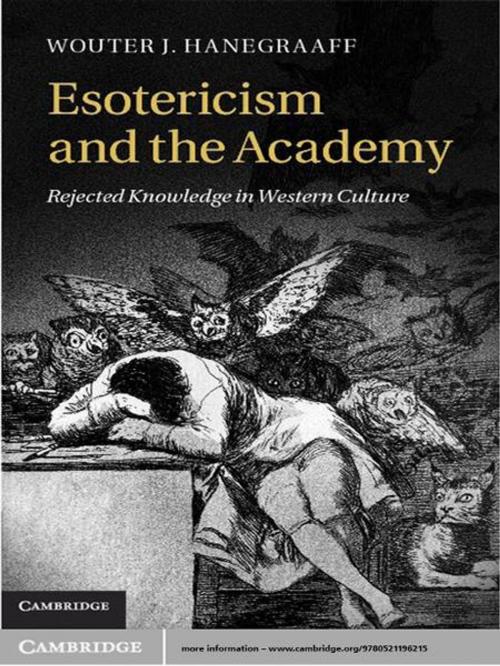Esotericism and the Academy
Rejected Knowledge in Western Culture
Nonfiction, Religion & Spirituality, Reference, History| Author: | Wouter J. Hanegraaff | ISBN: | 9781139209113 |
| Publisher: | Cambridge University Press | Publication: | January 19, 2012 |
| Imprint: | Cambridge University Press | Language: | English |
| Author: | Wouter J. Hanegraaff |
| ISBN: | 9781139209113 |
| Publisher: | Cambridge University Press |
| Publication: | January 19, 2012 |
| Imprint: | Cambridge University Press |
| Language: | English |
Academics tend to look on 'esoteric', 'occult' or 'magical' beliefs with contempt, but are usually ignorant about the religious and philosophical traditions to which these terms refer, or their relevance to intellectual history. Wouter Hanegraaff tells the neglected story of how intellectuals since the Renaissance have tried to come to terms with a cluster of 'pagan' ideas from late antiquity that challenged the foundations of biblical religion and Greek rationality. Expelled from the academy on the basis of Protestant and Enlightenment polemics, these traditions have come to be perceived as the Other by which academics define their identity to the present day. Hanegraaff grounds his discussion in a meticulous study of primary and secondary sources, taking the reader on an exciting intellectual voyage from the fifteenth century to the present day and asking what implications the forgotten history of exclusion has for established textbook narratives of religion, philosophy and science.
Academics tend to look on 'esoteric', 'occult' or 'magical' beliefs with contempt, but are usually ignorant about the religious and philosophical traditions to which these terms refer, or their relevance to intellectual history. Wouter Hanegraaff tells the neglected story of how intellectuals since the Renaissance have tried to come to terms with a cluster of 'pagan' ideas from late antiquity that challenged the foundations of biblical religion and Greek rationality. Expelled from the academy on the basis of Protestant and Enlightenment polemics, these traditions have come to be perceived as the Other by which academics define their identity to the present day. Hanegraaff grounds his discussion in a meticulous study of primary and secondary sources, taking the reader on an exciting intellectual voyage from the fifteenth century to the present day and asking what implications the forgotten history of exclusion has for established textbook narratives of religion, philosophy and science.















